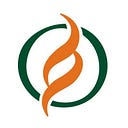Changing the Dialogue to Address Family Planning
Manasoa Avelin is helping women and men in Madagascar learn the benefits of family planning
In certain parts of Madagascar, traditional cultural beliefs still forbid women from seeking any kind of treatment from male health service providers. However, in the village of Mahanoro in southeastern Vohipeno District, one man is challenging this norm and making a difference.
Manasoa Avelin, 41, began working as a community health volunteer (CHV) in 2009 and is driven to improve his community by reducing childhood diseases, teaching parents about caring for the health of their families, and improving family planning — something Avelin considers particularly important. He said he has already seen a drop in the number of pregnant girls in the community and an increase in families interested in family planning.
“In the past, the abortion rate in our village was very high among young girls. This motivated me to take action to reduce deaths and improve the quality of life here for all. I talk to both women and men about the benefits — both for health and quality of life — that can be provided through family planning and using contraceptives. This way I can convince families to make necessary changes.”
— Manasoa Avelin
As a trusted member of the community, Avelin conducts home visits, provides information at large gatherings, and accepts people seeking treatment or advice into his home at all hours.
The MSH-led USAID Mikolo Project (2013–2018) worked to increase the quality and use of community-based primary health care services including expanding the uptake and continued use of family planning methods among rural populations. This was done primarily by focusing on improving the quality of family planning services provided by CHVs like Avelin and by engaging other community actors to promote family planning methods. These actors included youth peer educators who specifically targeted adolescents, as well as male and female leaders who sensitized and referred community members to CHVs for family planning consultations.
Avelin not only serves his small village of Mahanoro but neighboring villages as well, where the CHVs are not as well-versed on family planning. Avelin’s first health hut was on the edge of the village, but after discussions with the community, the residents built him one that was more central so he could better serve them.
Avelin’s name and skills are well-known in the whole commune of Andemaka, with one family planning client living 10 km away. As of February 2018 he had 34 family planning users (32 taking Depo Provera and 2 taking the pill). If any of his clients are interested in a family planning method he cannot provide, such as an implant or intra-uterine device, vasectomy, or tubal ligation, he brings them directly to the community health center.
He works closely with the health center and encourages villagers to attend other health education sessions there. Avelin has not only been recognized by his community, but also by the USAID Mikolo Project for his outstanding achievement in health as well as for his leadership in his Savings and Loans Community group. He taught members to utilize the community fund to pay for medicine or hospital visits if needed.
In 2015, many people in his community were struggling financially and often bought medicine on credit from Avelin. He continued to supply his stock, eventually going into debt himself. In response, during local campaigns such as bed net or vitamin distributions, the community, including its leader, gave Avelin and his family food and basic resources so he could continue his work.
Avelin also focuses on improving himself as a well-rounded resource for the community, including work with a nongovernmental organization that teaches new farming and agriculture techniques to youth. He enjoys teaching other CHVs who look to him for guidance, as well as gaining new information and training from the doctor at the local health center or from projects like USAID Mikolo.
To learn more about our work, visit msh.org and stay up to date with MSH by subscribing to our email series.
